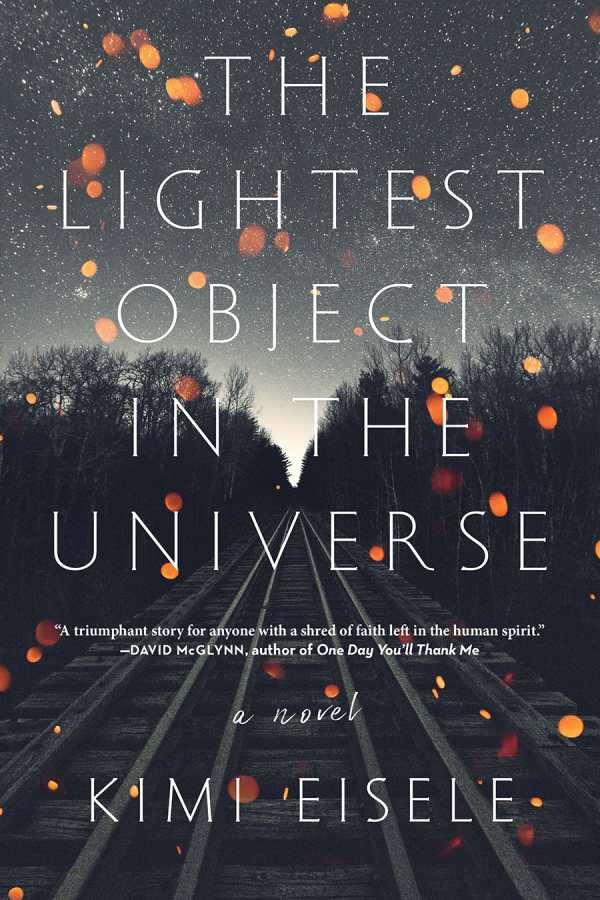The Lightest Object in the Universe
In the near future, the eco-apocalypse has come. The United States has gone dark, and without electricity, many are abandoning cities for better climates and arable land. Others are flocking to the country’s center, following the voice of a radio prophet who says he can give them the life they miss.
On opposite sides of the continent, new lovers Carson Waller and Beatrix Banks must figure out how to thrive where they’re planted. For Beatrix, this means finally committing to her neighborhood rather than trying to save people on distant shores. For Carson, it means embarking on the dangerous cross-country trek to Beatrix’s side. Along the way, Kimi Eisele’s The Lightest Object in the Universe witnesses to, and warns about, climate change, positing that “maybe this is what the end of the world [feels] like … Like waking up.”
Aimed at the population’s ignorance of living with the land and the ecological changes we’ve got to make, the novel presents a stark aftermath to a coming crisis. Against a backdrop of global meltdown and horrific pandemics, some communities crumble and others form, seeking mutual support and sustenance and relearning the age-old rituals of survival, from woodcraft to scavenging, gardening to food preservation. Still, it’s frustrating that many presented facts about agrarian life are wrong, glossing over particulars in favor of a broad morality tale in a way that affects the story’s believability. Carson and Beatrix’s romance is the center that holds it all together, propelling the narrative through uncertainty, suffering, and heartache.
The Lightest Object in the Universe believes in John Muir’s adage that “In God’s wildness lies the hope of the world.” It imagines interdependent communities forged when the wilderness is no longer relegated to geographic space but instead permeates everyone’s physical and emotional reality.
Reviewed by
Letitia Montgomery-Rodgers
Disclosure: This article is not an endorsement, but a review. The publisher of this book provided free copies of the book to have their book reviewed by a professional reviewer. No fee was paid by the publisher for this review. Foreword Reviews only recommends books that we love. Foreword Magazine, Inc. is disclosing this in accordance with the Federal Trade Commission’s 16 CFR, Part 255.

